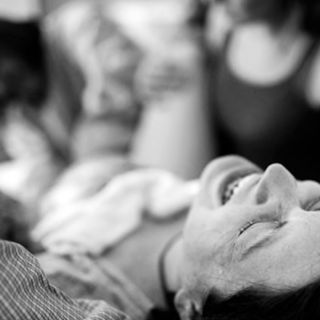Children from socio-economically disadvantaged backgrounds are three times more likely to develop difficulties with language than those from more affluent areas, according to research published in JAMA Network Open.
The greatest implications of not addressing speech, language and communication development in economically disadvantaged children is that it will impede their potential for emotional development, wellbeing and greatly reduce their educational and employment opportunities, according to the researchers.
“Growing up in a disadvantaged neighborhood, where there is poverty and reduced access to services, is closely associated with problems with preschool language development. These results suggest that policies designed to lessen deprivation could reduce language and communication difficulties among preschool children,” James Boardman, a co-author of the study and professor of neonatal medicine at the University of Edinburgh, said in a statement.
Related on The Swaddle:
How Culture Shapes The Way Children Develop
Researchers looked at more than 26,000 children who had routine health reviews between 2013 and 2016 and found individuals in economically deprived neighborhoods were more likely to have speech, sound and fluency disorders.
The “word gap” concept is also often used to explain the difference between the speech, language, and communications development of affluent and disadvantaged children. The term was coined by Betty Hart and Todd R. Risley in their article titled “The Early Catastrophe – The 30 Million Word Gap by Age 3.” Hart and Risley’s research found that, “… In four years, an average child in a professional family would accumulate experience with almost 45 million words, an average child in a working-class family, 26 million words, and an average child in a welfare family, 13 million words.”
“Because the word gap first appears during periods of critical neurological and cognitive development, its effects cannot be easily remedied by later interventions. Teachers, standards, technology, even those hallowed halls of ivy — none of this matters as much to a child’s educational and economic future than an informed and empowered parent,” Jessica Lahey, a teacher, and writer, wrote for The Atlantic.
However, critics of the concept disagree. Douglas Sperry, a critic of the word gap theory, and a professor of psychology at Saint Mary-of-the-Woods College, told NPR that “to look at income alone obscures real questions about the cultural mismatch between children of color and mainstream European children and their teachers as they enter schools.” Sperry believes that the term “word gap” is racially loaded, given the overlap between race and socioeconomic demographics in the U.S., and that the problem isn’t children not being ready for schools; it’s schools not being ready for children. If there are not enough policies in place to address the speech differences between disadvantaged and privileged children, and no teachers trained to deal with children of varying knowledge backgrounds, the system may be passing on the blame for economically disadvantaged parents to shoulder alone.
Regardless of differences, the word gap theorists, their critics, and researchers of the recent study all have the same goal — which is to eliminate the difference in learning between children of different socioeconomic backgrounds. Researchers of the recent study believe their findings “highlight the urgent need for strategies to reduce the number of children growing up in deprived situations and the need to assess children who were born preterm for difficulties with [speech, language, and communications] during the preschool years.”




